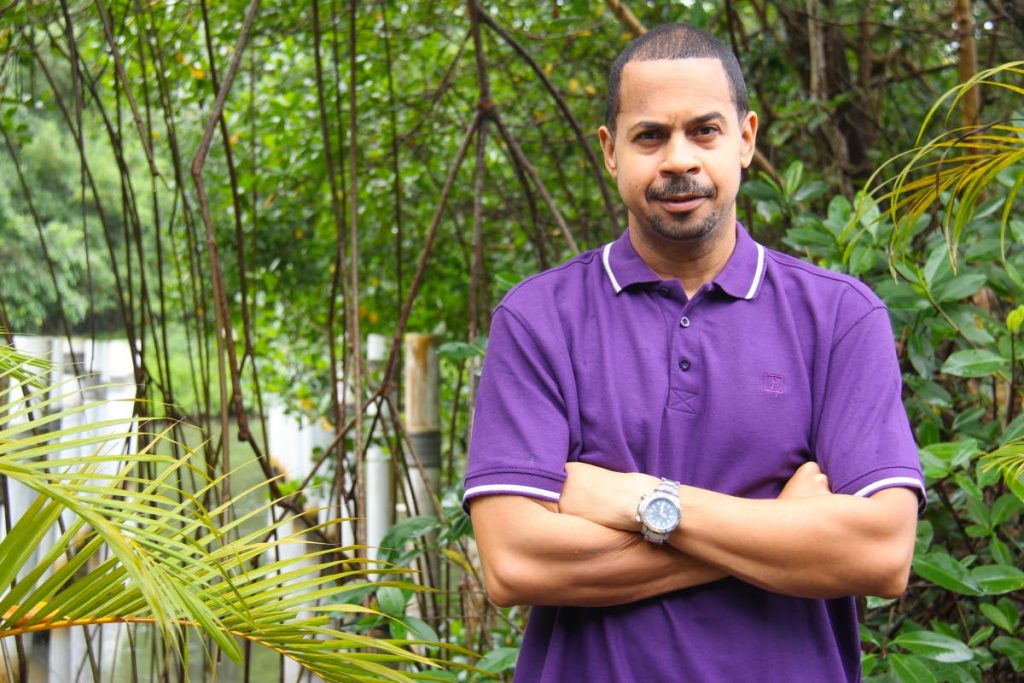Disrupting the cycle of domestic violence

"ANOTHER murder. This one is an older woman."
"Ah nex one? Send that by Kernahan!"
Chatter from a newsroom long extinct; a pocket of time in my distant past. As a crime reporter, I wrote more stories about the deaths of women at the hands of men than I care to recount. There is one domestic killing, though, that stayed with me – one of the psychological scars of my career.
An older woman, perhaps in her 70s, was trying to escape her abusive husband after years of physical and verbal torment. All she needed was to gather up some personal items at her former home. She was accompanied to the house by the police. While officers were in the yard, she stepped inside. Shockingly, her husband quickly slammed shut an impregnable steel door...and killed her.
"We didn't have no authority to enter the home." Police who were outside, mostly looking at their shoes after the fact, could do nothing to save her.
That woman's killer had long resolved before she set foot back in his steel trap that she had forfeited her life just for the effrontery of trying to save it.
Of late, I've been doing some work with domestic violence NGOs, work that dredged up memories of the grim terrain I once covered as a reporter. There was a period in the 90s when it seemed like there was a domestic violence killing every week. So imagine in 2020 setting a goal of eliminating all forms of violence against women and girls by 2030.
As ambitious objectives go, that might seem as tall an order as pushing back climate change. It is, however, absolutely crucial and that's the target of the Spotlight Initiative. This is a European Union and the United Nations collaboration to combat domestic violence.
Spotlight is tasked with buttressing local NGOs to provide support for victims of domestic violence and to push for policy and legislative strengthening to create a safer society.
That may sound like sterile language, but it actually does mean something on the ground. One of the widely-reported side effects of covid19 lockdown measures was the sharp rise in the reported cases of domestic violence.
The Spotlight Initiative collaborated with NGOs such as the Coalition Against Domestic Violence, Family Planning Association, Medical Research Foundation and Rape Crisis Society to provide telemedicine services and counselling done over the internet or phone. This was an ideal workaround for critical services that could no longer be done in person.
In this way, women in difficult circumstances were assured help was just a phone call away. The telemedicine and internet services developed in response to covid19 restrictions proved so popular that they continue long after stay-at-home orders were lifted. This makes sense because the need is great.
NGOs which tackle the problem of domestic violence aren't shy about identifying surging demand for their services. Every week it seems women of varying ages, some very young and pregnant or with children, are brought beleaguered to the doorsteps of these community-based organisations by the police. They seek refuge from persistent abuse and haven't the option of turning to family. These women need shelter and a non-judgmental ear – two basic conditions that can help them eventually escape abusive conditions and possibly save their lives.
The Spotlight Initiative is also funding training for Groots TT, a Tunupuna-based NGO. That training will focus on national domestic violence legislation, counselling for survivors and teachings on safety around the safe house – the real nuts and bolts of tackling the problem of domestic violence in society.
In our focus on domestic violence, we tend to forget that children are also often traumatised by violence in the home, if not subjected to abuse themselves. As such, the Tobago-based Choice Foundation is expected to receive funding from the Spotlight Initiative to establish a support group for abused children. These are the sort of efforts that will take us, as a nation, beyond saying "never again"...until the next woman is killed.
Many of the organisations combating the scourge of domestic violence say attitudes towards the problem in society are shifting, but there is still a long road to travel.
Domestic violence must be fought on several fronts. Every woman taken from us is a valuable contributor to the growth and development of our society. We should all be encouraged by stories of survivors who've gone on to be defined by their grit and not their past. Still, we must never allow another woman to have that steel door slammed shut behind her.

Comments
"Disrupting the cycle of domestic violence"